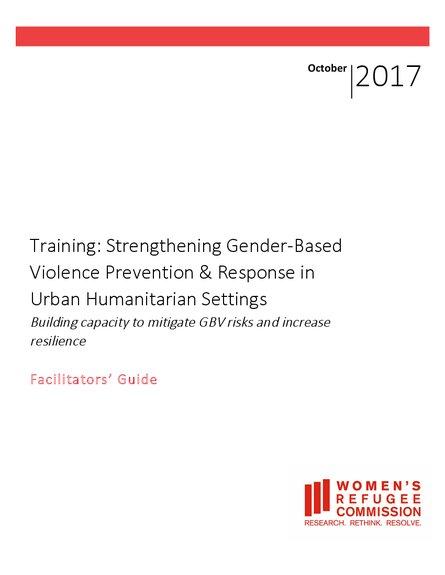Building Capacity to Mitigate GBV Risks and Increase Resilience

Since 2014, the Women’s Refugee Commission (WRC) has worked with partners to close the evidence gaps around the GBV needs and capacities of different urban refugee sub-populations. This work has focused on four cities with sizeable refugee populations: Beirut, Quito, Kampala, and Delhi. After direct consultations with urban refugees and stakeholders, WRC developed tools for urban-specific GBV risk assessments and building links between humanitarian and non-humanitarian actors who can contribute to mitigating urban refugees’ risks of GBV. WRC also worked with local organizations to conduct pilot activities tailored to mitigate the GBV risks of traditionally marginalized groups.
This training package, developed by WRC, provides an overview of research findings and engages participants in strategies for applying an urban-specific lens to GBV prevention and response.
Training Goals:
- Familiarize practitioners with new evidence-based, urban-specific interventions and tools.
- Provide practical instruction for analyzing and implementing urban GBV risk-mitigation strategies.
Links
Resource collections
- Accountability to affected populations (AAP)
- Topics
- UN Habitat - Urban Response Collection
- Urban Response - Urban Crisis Preparedness and Risk Reduction
- Urban Response Collection - Community Engagement and Social Cohesion
- Urban Response Collection - Economic Recovery
- Urban Response Collection - Environment and Climate Change
- Urban Response Collection - Housing, Land and Property
- Urban Response Collection - Urban Crisis Response, Recovery and Reconstruction
- Urban Response Collection - Urban Resilience
